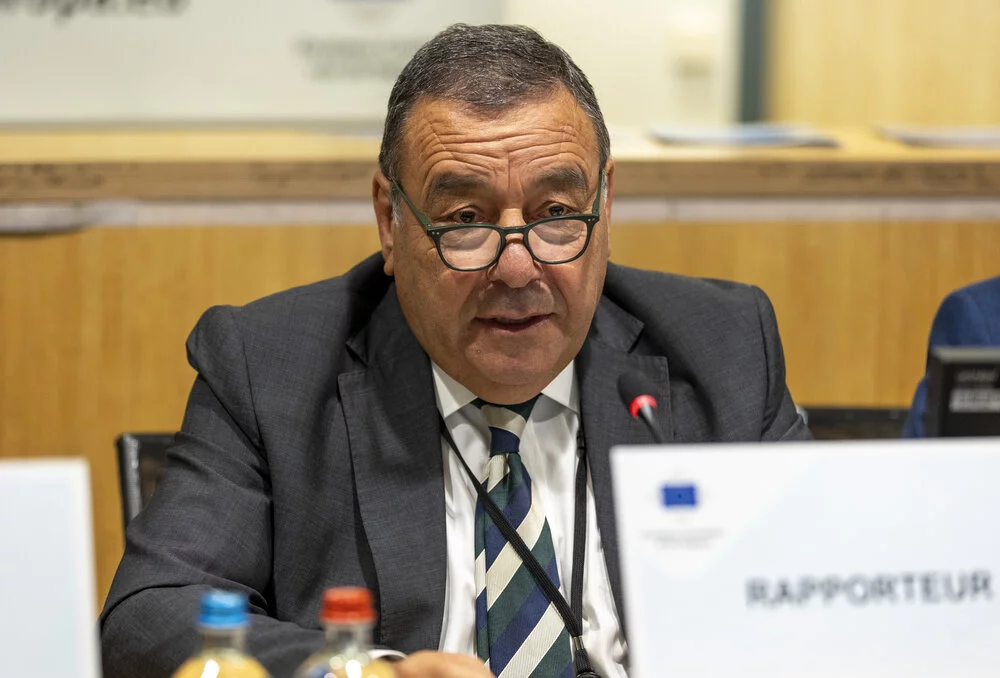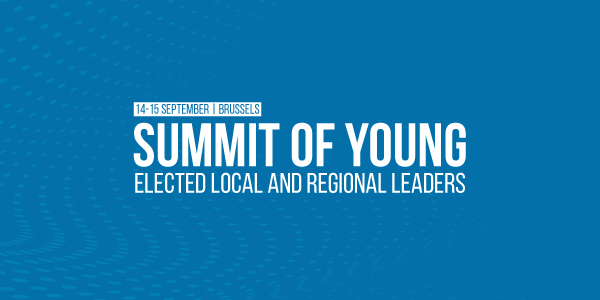In a draft report on the EU’s Strategy with Africa, Guido Milana (Olevano Romano, Italy) calls for the revitalization of EU-Africa relations, emphasizing the vital role that local and regional authorities (LRAs) play in fostering economic growth, sustainable development, and shared prosperity between the continents. The European Committee of the Regions (CoR) Opinion, drafted by Guido Milana within the Renew Europe group, draws on both historical contexts and contemporary challenges to outline policy recommendations for a renewed partnership.
Amidst rapid population growth and urbanization, Africa’s cities and regions are crucial to the continent’s development. Guido Milana stresses in his draft report that the EU should consider its relationship with Africa from a holistic perspective, incorporating multi-level governance that empowers various levels of government. Milana also addresses the geopolitical landscape, marked by increasing competition from global powers such as China and Russia. Existing EU tools and methods must evolve to better meet African partners’ needs and tackle pressing challenges.
Although the EU’s immediate neighbourhood in Africa through some of its outermost regions is a clear advantage in the EU-Africa partnership, Milana highlights the importance of the subsidiarity principle, calling for the direct involvement of partner countries’ LRAs. Decentralisation and localisation of EU operations in Africa are key to transforming the living conditions of African cities and regions and to promoting the values of democracy and good governance. To enhance local cooperation within the Partnership, Milana proposes the creation of a dedicated unit for LRAs within the European Commission (EC) and the European External Action Service (EEAS). This would ensure that LRAs are recognized in the formulation of development policies. Additionally, the draft report suggests monitoring financial assistance to Africa, collecting data on ongoing projects as well as the establishment of a digital platform to facilitate connections between EU’s LRAs and their counterparts in Africa. These initiatives aim to not only strengthen the effectiveness of decentralised cooperation projects, but also to prevent corruption
The evolving landscape of international cooperation calls for a renewed partnership between the European Union and Africa, which empowers local and regional authorities from both continents. A fundamental aspect of the renewed partnership is the need for inclusive financing instruments that support LRAs. The establishment of the Neighbourhood, Development and International Cooperation Instrument – Global Europe (NDICI-Global Europe) marks a significant step toward consolidating various funding mechanisms. However, as Milana notes, it assigns a secondary role to subnational authorities. To address this, the EU is urged to create a dedicated budget line for local authorities, enabling them to actively participate in strategic design, implementation, and evaluation processes under the NDICI and the Global Gateway strategy. Additionally, boosting EU financial support for decentralised cooperation projects between European and African LRAs, as well as the creation of a financing fund specifically for African sub-national authorities would empower local governments to address pressing needs within their communities.
To ensure that the renewed Partnership promotes decentralised cooperation, Milana suggests setting up a pilot project that would be developed and implemented by LRAs, financed by the European Commission, and in the form of a European Parliament pilot project. This would focus on the Africa-EU Partnership’s priorities that have a territorial impact. To further enhance the role of subnational authorities, Milana calls for LRAs to be involved in the preparation of EU-AU summits and the appointment of a CoR representative who would attend them.
Capacity building is another vital element for empowering LRAs in African cities and regions. The proposal for an annual program involving elected representatives from both regions aims to strengthen frameworks for local governance and enhance the role of younger generations in implementation efforts. Additionally, establishing a virtual public administration academy would equip local authorities with the skills needed to navigate the complexities of international partnerships. The EU is also encouraged to include African LRAs in existing exchange programs, such as the Technical Assistance and Information Exchange (TAIEX) programme.
Migration remains a critical issue in the EU-Africa dialogue. Guido Milana is against the criminalisation of asylum seekers and migrants, and calls on the Commission to propose legislation on legal migration. He stresses the need to focus on the root causes of irregular migration, efforts to enhance border management, and safe and regular pathways for migration instead. By doing so, the EU can foster a more humane and effective approach to migration management, one in accordance with its fundamental principles and values. Noting that the EU needs to deal with labour shortages and depopulation, Milana also suggests establishing a European plan for the recruitment of foreign labour to facilitate the migration of workers from African third countries. He stresses that although this is not a magic bullet to tackle labour shortages, it is undoubtedly a significant part of the solution. With this in mind, developing relevant technical and vocational training opportunities at the local level will be imperative.
By empowering local and regional authorities and enhancing cooperation, the draft report by Guido Milana sets forth a roadmap for a more effective EU-Africa Partnership that can yield mutual benefits for both continents. As the EU navigates its role on the world stage, fostering strong, collaborative relationships with African nations will be essential for achieving long-term prosperity and resilience.
The European Committee of the Regions cooperates with subnational authorities in Africa mainly through the Euro-Mediterranean Regional and Local Assembly (ARLEM) established in 2010. Additionally, the Renew Europe Group in the European Committee of the Regions collaborates with the Renew Europe Group in the European Parliament on its RENEWPAC initiative.
To read the draft CoR Opinion by Guido Milana, click here.





